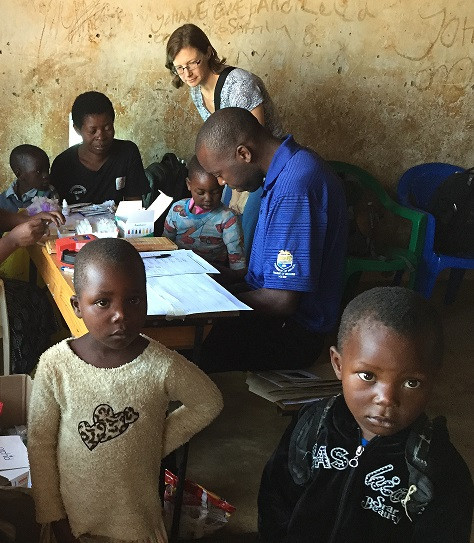ASTMH Annual Meeting 2025
blogThe Impact of Malaria on Children’s Education
By: Hanna Lebuhn, Ba, University of Maryland, Baltimore

High rates of malaria in children ages five to fifteen years of age may limit the ability to control malaria in sub-Saharan Africa. Children exposed to malaria may experience severe cognitive and educational setbacks. However, the educational consequences of malaria during school age are largely underappreciated and understudied.
University of Maryland School of Medicine (UMSOM) researchers and colleagues in Malawi and Mali made ground-breaking findings documenting the burden of malaria in these school age children. Clinical malaria causes school absences, anemia and limits cognitive development. The combination of all of these factors contribute to both decreased cognitive function as well as decreased educational attainment.
Infections in these children also serve as an important source of malaria transmission. New findings reported by Center for Vaccine Development (CVD) researchers at this year’s ASTMH annual meeting highlight several key findings for developing interventions to prevent malaria in this age group. The mosquitoes that carry malaria are more likely to bite school-age children than other members of the household. Often, these children do not sleep under bed nets and would therefore benefit from additional control efforts. The World Health Organization recently provided guidance that high malaria burden countries could implement intermittent preventive treatment of malaria in school-age children. In both Mali and Malawi, providing intermittent treatment of malaria with long acting drugs provides long term benefits to children by preventing malaria infection and decreasing rates of anemia. In addition, malaria prevention in this group improves educational outcomes.
Several other UMSOM researchers at this year’s ASTMH covered malaria transmission among school-aged children. Dr. Lauren Cohee’s presentation at ASTMH described the ways in which tablet-based assessments of cognition and foundational reading and math skills may help quantify the impacts of malaria in this age group and determine their mechanisms.
Additional research has focused on topics such as comparing chemoprevention approaches for school-based malaria control, gender-specific effects of intermittent preventive treatment of malaria with artemisinin-based combination therapies, and the changes in malaria epidemiology as we approach elimination.
Hanna is a Senior Clinical Research Assistant with the University of Maryland, Baltimore
Related Posts
By: Matthew Davis, Burness